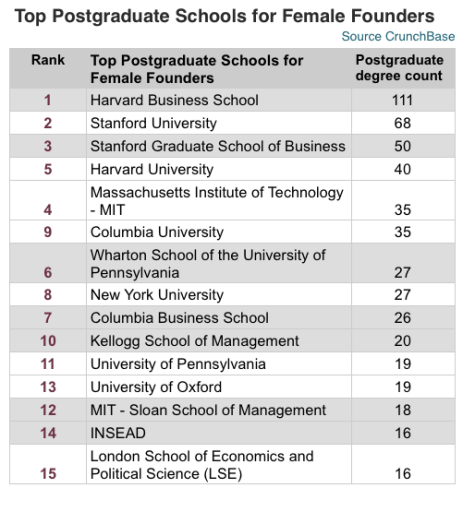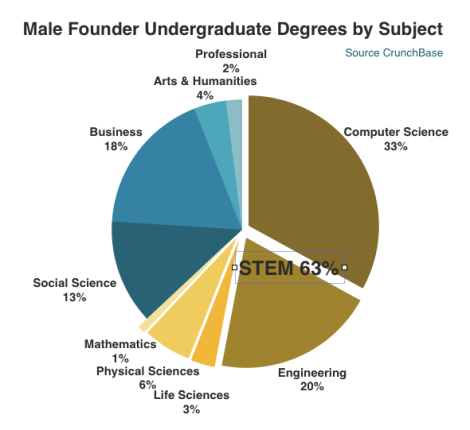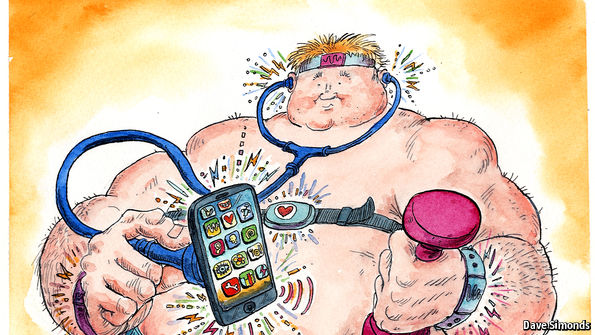For those considering beefing up their technical skills, check out this data:
Read more in TechCrunch.
Wednesday, April 20, 2016
Monday, April 18, 2016
Executive Networks and Firm Policies: Evidence from the Random Assignment of MBA Peers
Peer effects and business schools. Does that ski trip with friends later in life affect your pay?
Read more by Kelly Shue at UC Booth.
Read more by Kelly Shue at UC Booth.
Thursday, April 14, 2016
Building a Better Father
An excerpt:
Thanks, Fred
AS a child I was schooled constantly in how different mothers and fathers were. TV shows spelled it out. So did examples and conversations all around me, including in my own home.
A mother’s love was supposedly automatic, unconditional. A father’s love was earned. Mothers nurtured, tending to tears. Fathers judged, prompting them.
And while mothers felt pressure to lavish time and affection on their children, fathers could come and go. As long as they did their part as providers, the rest was negotiable.Read more in the NYT.
Thanks, Fred
Man accidentally 'deletes his entire company' with one line of bad code
‘I feel sorry to say that your company is now essentially dead,’ one person on a coding forum advised Marco Marsala.
Read more in the Independent.
Read more in the Independent.
Wednesday, April 13, 2016
Chip, Implanted in Brain, Helps Paralyzed Man Regain Control of Hand
The future is here. It's not evenly distributed. Read more in the NYT.
Sunday, April 10, 2016
Benefits of Becoming My Own CTO
Learnings from a solo, (formerly) non-technical, female founder. Read more in Medium.
Thanks, +Samantha Pearlman
Thanks, +Samantha Pearlman
Saturday, April 9, 2016
In Secret Hideaway, Bill Gates Ponders Microsoft's Future
He reads dozens of papers in twice-a-year ritual. Read this (old) piece from 2005 in the WSJ.
Thanks, +Adam Behrens
Thanks, +Adam Behrens
The Largest Analysis of Dialogue by Gender in Hollywood, Ever
An excerpt:
Lately, Hollywood has been taking so much shit for rampant sexism and racism. The prevailing theme: white men dominate movie roles.
But it’s all rhetoric and no data, which gets us nowhere in terms of having an informed discussion. How many movies are actually about men? What changes by genre, era, or box-office revenue? What circumstances generate more diversity?
To begin answering these questions, we Googled our way to 8,000 screenplays and matched each character’s lines to an actor. From there, we compiled the number of lines for male and female characters across roughly 2,000 films, arguably the largest undertaking of script analysis, ever.Check out the numbers here.
Friday, April 8, 2016
Sunday, April 3, 2016
Beyond true and false
Buddhist philosophy is full of contradictions. Now modern logic is learning why that might be a good thing.
Read Graham Priest's article.
Read Graham Priest's article.
Friday, April 1, 2016
The Trump Master Persuader Index and Reading List
Scott Adams, the Dilbert creator, has a long list of posts analyzing (and predicting) Trump's unbelievable rise within US Politics.
Thanks, Steve
Thanks, Steve
Things are looking app
Mobile health apps are becoming more capable and potentially rather useful.
The smartphone app Your.MD uses artificial intelligence to understand statements such as "I have a headache" and ask pertinent follow-up questions. The app typifies a new approach to mobile health (also known as m-health): it is intelligent, personalized, and gets cleverer as it gleans data from its users. There are now around 165,000 such apps, and PwC, a consulting firm, forecasts that they will have been downloaded 1.7 billion times by 2017. Most smartphone health apps, such as the Fitbit wristband, now fall squarely into the category of "wellness." However, there is a growing range of apps through which users can talk directly to doctors and therapists, as well as an emerging breed that monitor and diagnose patients with a variety of ailments, in some cases predicting and thus helping to avert health crises. Although many app providers are still small, BCC Research forecasts that global revenues for m-health will reach $21.5 billion in 2018.Read more in the Economist.
Microbes can play games with the mind
The bacteria in our guts may help decide who gets anxiety and depression. This:
Thanks, +Jason Ethier
Ted Dinan, the psychiatrist who coined the term “psychobiotics,” was fascinated by a tragedy in Walkerton, Canada, in May 2000. Floods caused the small town’s water supply to be overrun with dangerous strains of two bacteria: Escherichia coli and Campylobacter. About half the town’s population got ill, and a handful of people died. For most residents, the illness was short-lived, about 10 days on average, says Dinan, who collaborates with Cryan at University College Cork. But years later, scientists who had been following the health of Walkerton residents noticed something surprising. “The rates of depression in Walkerton were clearly and significantly up,” Dinan says. That spike raised suspicion that the infection had caused the depression.WHAT?! Read more in Science News.
Thanks, +Jason Ethier
Subscribe to:
Posts (Atom)
Why Women Aren’t C.E.O.s, According to Women Who Almost Were
"It’s not a pipeline problem. It’s about loneliness, competition and deeply rooted barriers." Read more in the NYT .

-
Ever wonder who goes to the Gossip Girl set to see a glimpse of the actors in NYC? Look above at the picture. The NY Times also included som...
-
"It’s not a pipeline problem. It’s about loneliness, competition and deeply rooted barriers." Read more in the NYT .
















